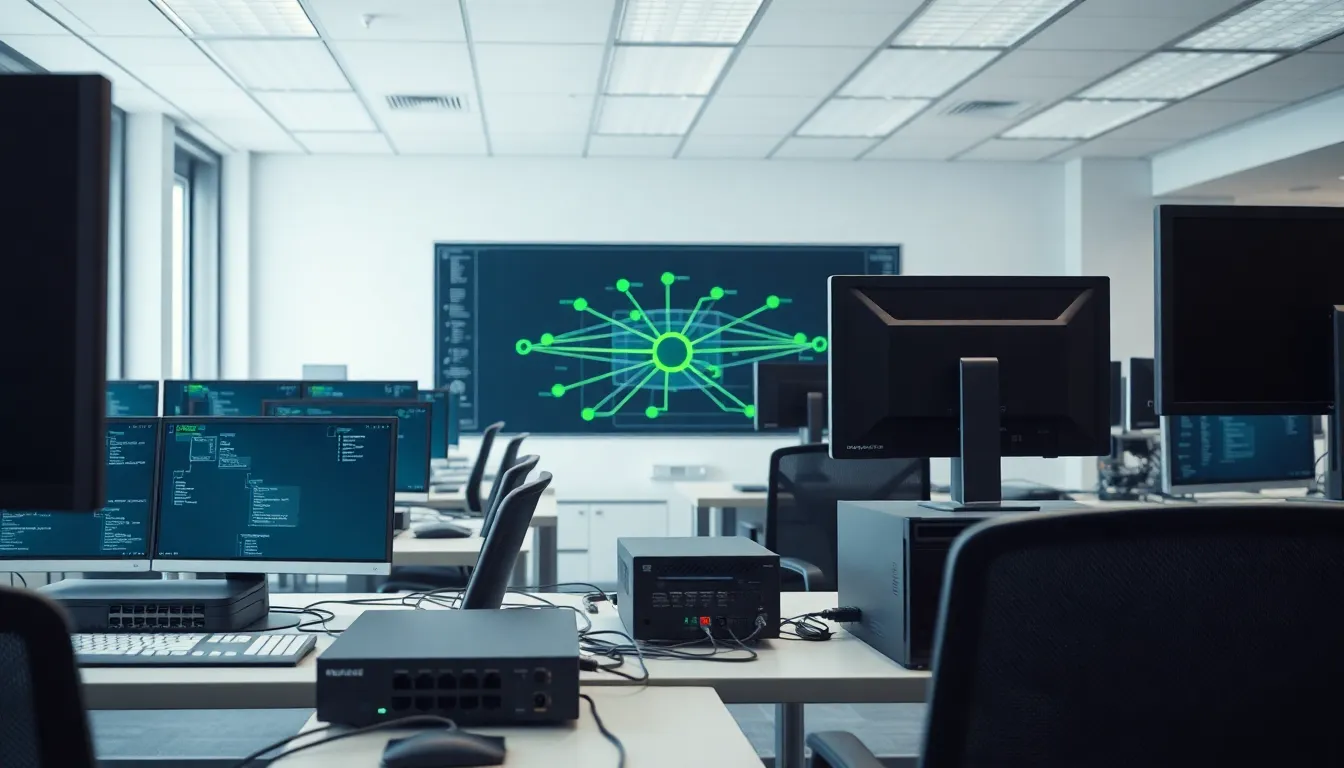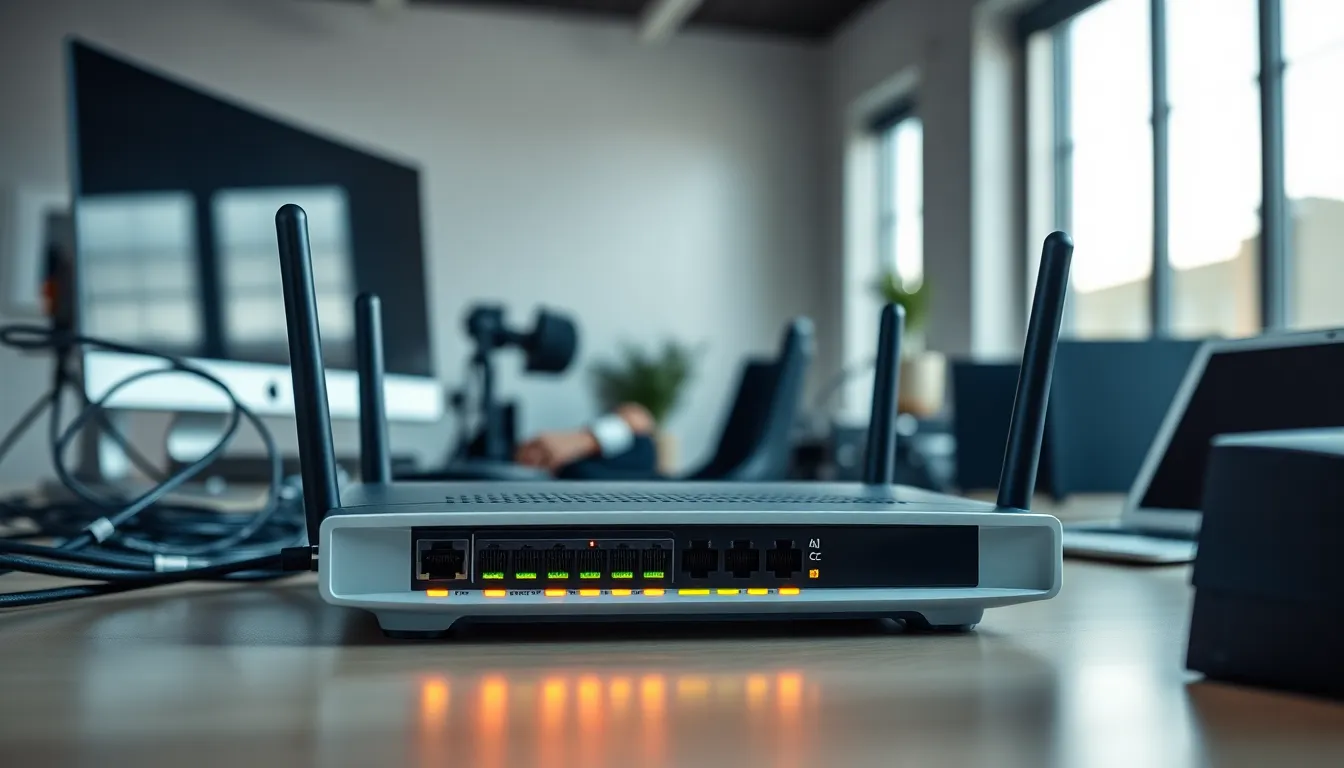In the vast digital universe, every IP address has a story to tell, and 10.162.132.100 is no exception. This seemingly ordinary string of numbers might look like just another face in the crowd, but it holds secrets that could unlock the mysteries of your network. Ever wondered what lurks behind those digits? Spoiler alert: it’s not a secret lair for tech villains, but it could lead you to some fascinating insights.
Table of Contents
ToggleOverview of 10.162.132.100
10.162.132.100 belongs to a class of private IP addresses designated for internal network use. This specific range falls within the larger Class A private IP space, which spans from 10.0.0.0 to 10.255.255.255. Organizations commonly use private IP addresses like this one to maintain forward-facing public IPs and minimize exposure to external threats.
Network devices rely on IP addresses to communicate effectively. They assign 10.162.132.100 to devices such as routers, switches, or servers, facilitating local networking. This address enables devices within the same local area network (LAN) to interact without needing a public IP, which preserves bandwidth and enhances security.
Private IPs face certain limitations. For instance, they cannot directly connect to the internet without Network Address Translation (NAT). When a device with an internal IP like 10.162.132.100 accesses the internet, the NAT process translates the private address to a public one, allowing for communication with external servers.
Security measures often accompany private IP networks. Organizations employing 10.162.132.100 typically implement firewalls and other protective measures, ensuring only authorized device connections. Consequently, this adds a layer of security against potential cyber threats.
Understanding 10.162.132.100 provides insights into network configurations. Analyzing its usage might reveal specific organizational structures or operational practices adopted by companies utilizing this address. It’s important to consider how a single IP can play a crucial role in an organization’s overall network strategy and security architecture.
Features and Specifications

The IP address 10.162.132.100 offers various features and specifications valuable for network management. Understanding its functionalities and performance can help organizations optimize their internal communications.
Key Functionalities
This private IP address supports communication between devices like computers, printers, and servers within a local area network. It plays a crucial role in ensuring efficient data transmission without using public IP addresses. NAT allows these internal devices to connect with the internet while maintaining their private status. Organizations often set up access controls and security protocols with this IP address, safeguarding essential data from external threats. Moreover, it aids in network segmentation, helping to isolate different departments or functions, which enhances security and reduces congestion within the network.
Performance Metrics
10.162.132.100 demonstrates reliability through its performance in localized network environments. Data transfer rates typically range from 100 Mbps to 1 Gbps, depending on the network’s infrastructure. This address maintains low latency, enabling seamless communication between connected devices. Packet loss rates remain minimal, ensuring high-quality data transmission for applications like VoIP and video conferencing. Organizations can also monitor bandwidth utilization metrics through network management tools, allowing them to adjust resources effectively and sustain optimal performance.
Use Cases
The private IP address 10.162.132.100 serves various functionalities within local networks. This address supports seamless communication among internal devices while ensuring data security.
Recommended Applications
Many organizations utilize 10.162.132.100 for intranet services. Devices such as printers, computers, and servers communicate efficiently in a local area network. Network management systems often leverage this address for monitoring activities and resource allocation. Additionally, businesses implement this IP address within their virtual private networks to enhance security. Remote access solutions can also benefit from utilizing it, ensuring secure connections for off-site employees.
Compatibility Considerations
Compatibility plays a significant role when using 10.162.132.100. Devices operating on this private IP must support Network Address Translation for external communication. Firewalls should accommodate this IP to ensure seamless network security protocols. Assessing device configurations ensures adaptability across various operating systems. Furthermore, routers must support the private IP range to manage traffic effectively. Regular software updates maintain compatibility with evolving network standards.
Security Aspects
Understanding security aspects related to 10.162.132.100 reveals various vulnerabilities and threats that can impact networks.
Vulnerabilities and Threats
Private IP address 10.162.132.100, while useful, poses several vulnerabilities. Attackers may exploit misconfigured NAT settings to gain unauthorized access. Additionally, inadequate firewall rules can allow malicious traffic to enter the network. Devices connected to this address can face threats from internal vulnerabilities, especially if they lack proper security updates. Moreover, it could become a target for local network attacks, such as man-in-the-middle situations. Organizations should recognize these threats to safeguard their data effectively.
Protection Measures
Effective protection measures ensure the security of 10.162.132.100 within an organization’s network. Regular software updates help close security gaps on connected devices. Implementing robust firewall rules restricts unauthorized access and monitors incoming traffic. Network segmentation further enhances security by isolating sensitive data from less secure areas. Utilizing strong passwords across devices minimizes the risk from internal threats. Organizations often deploy intrusion detection systems to identify malicious activities promptly. Additionally, training staff about cybersecurity best practices helps establish a security-conscious culture.
The exploration of 10.162.132.100 reveals its vital role in network management and security. As a private IP address it enables efficient communication within local area networks while safeguarding sensitive data. Organizations leveraging this address benefit from enhanced security measures and improved bandwidth management.
Understanding the intricacies of 10.162.132.100 empowers businesses to optimize their network configurations and protect against potential threats. By implementing robust security protocols and maintaining proper device configurations organizations can ensure a secure and efficient network environment. This private IP address is more than just a number; it represents a cornerstone of modern network architecture.



